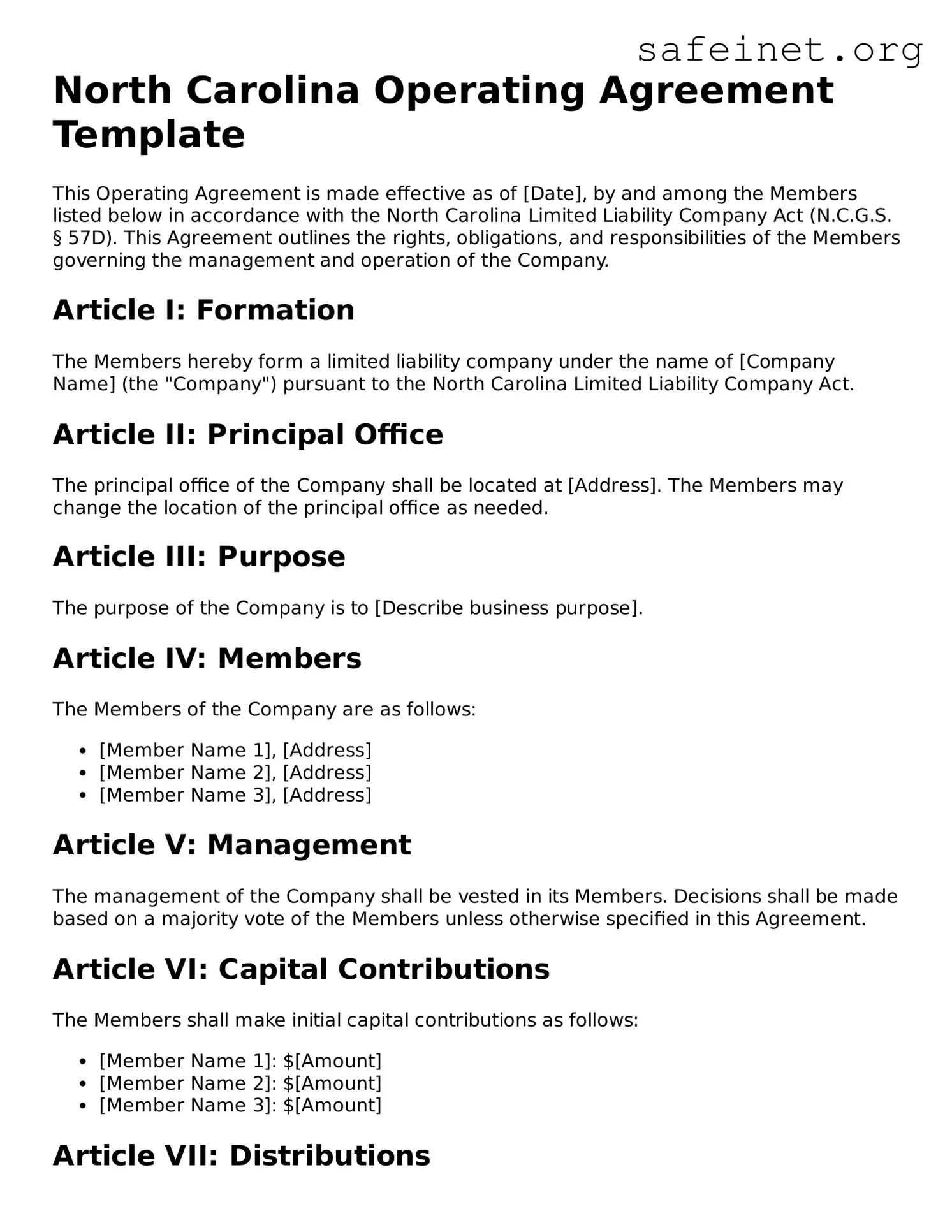North Carolina Operating Agreement Template
This Operating Agreement is made effective as of [Date], by and among the Members listed below in accordance with the North Carolina Limited Liability Company Act (N.C.G.S. § 57D). This Agreement outlines the rights, obligations, and responsibilities of the Members governing the management and operation of the Company.
Article I: Formation
The Members hereby form a limited liability company under the name of [Company Name] (the "Company") pursuant to the North Carolina Limited Liability Company Act.
Article II: Principal Office
The principal office of the Company shall be located at [Address]. The Members may change the location of the principal office as needed.
Article III: Purpose
The purpose of the Company is to [Describe business purpose].
Article IV: Members
The Members of the Company are as follows:
- [Member Name 1], [Address]
- [Member Name 2], [Address]
- [Member Name 3], [Address]
Article V: Management
The management of the Company shall be vested in its Members. Decisions shall be made based on a majority vote of the Members unless otherwise specified in this Agreement.
Article VI: Capital Contributions
The Members shall make initial capital contributions as follows:
- [Member Name 1]: $[Amount]
- [Member Name 2]: $[Amount]
- [Member Name 3]: $[Amount]
Article VII: Distributions
Distributions will be made to the Members at the end of each fiscal year or as determined by the Members, in accordance with respective ownership percentages.
Article VIII: Indemnification
The Company shall indemnify each Member to the fullest extent permitted by North Carolina law against any liabilities incurred in connection with the Company.
Article IX: Amendments
This Operating Agreement may be amended only by a written agreement signed by all Members.
Article X: Governing Law
This Agreement shall be governed by and construed in accordance with the laws of the State of North Carolina.
Article XI: Miscellaneous
- This Agreement constitutes the entire understanding of the Members.
- No waiver of any provision of this Agreement shall be effective unless in writing.
- If any provision of this Agreement is found to be unenforceable, the remaining provisions shall remain in effect.
IN WITNESS WHEREOF, the parties have executed this Operating Agreement as of the date first above written.
Signatures:
______________________________
[Member Name 1]
______________________________
[Member Name 2]
______________________________
[Member Name 3]
This template reflects the general structure and content typically found in an Operating Agreement, tailored specifically for North Carolina, while ensuring the use of clear and straightforward language.
